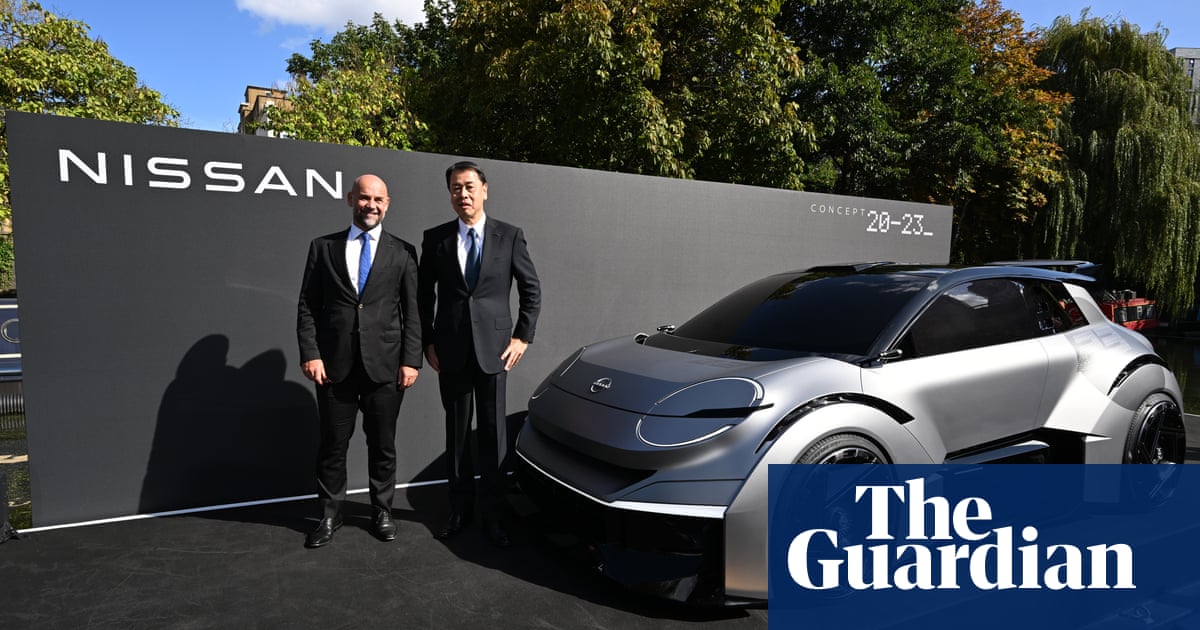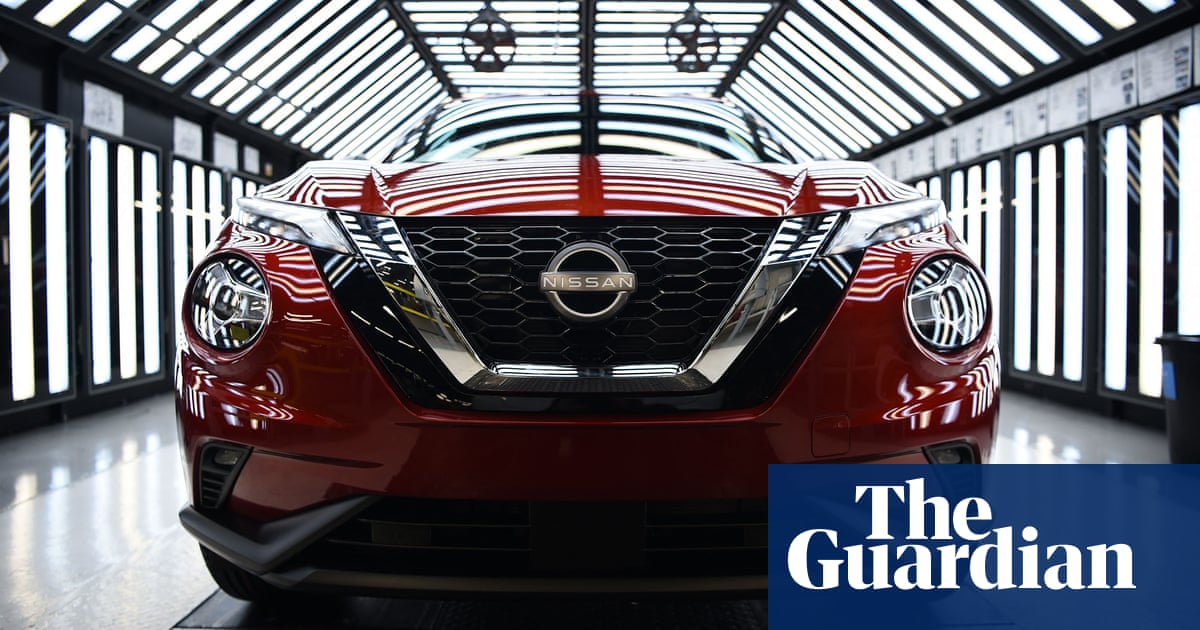
Nissan has vowed to “press ahead” with a plan to only sell electric vehicles in Europe by 2030 despite Rishi Sunak’s delay to the UK ban on new petrol and diesel car sales.
The Japanese carmaker said all new models in Europe will be entirely electric by the end of the decade, as it launched a new EV design in London.
Sunak sparked anger among green campaigners, MPs and sections of the car industry last week when he announced a U-turn on a string of climate-related policies, including delaying a planned ban on new petrol and diesel cars and vans by five years from 2030 to 2035.
Carmakers have already spent billions shifting their models and supply chains towards electric cars, and the ban could disrupt their plans for phasing out petrol and diesel cars. However, Nissan said on Monday that it was “pressing ahead with plans to achieve 100% EV in Europe by 2030, with all new Nissan models from now to be all-electric in Europe”.
Ford and the Vauxhall owner, Stellantis, also plan to be fully electric in Europe by 2030, and Volvo intends to sell only EVs globally by then. Traditional car brands are racing to catch up with electric specialists such as Tesla.
Nissan’s president and chief executive, Makoto Uchida, said: “There’s no going back. The world needs to move on from internal combustion engines.”
The carmaker plans to introduce 19 full-electric and eight hybrid models before 2030. By 2028, it also hopes to introduce “cobalt-free” technology to bring down the cost of EV batteries by 65%. It is also working on a battery that can cut charging times by a third, due to launch in five years’ time.
“EVs powered by renewables are key to us achieving carbon neutrality, which is central to our Ambition 2030 vision. Nissan will make the switch to full electric by 2030 in Europe – we believe it is the right thing to do for our business, our customers and for the planet,” Uchida added.
Nissan’s European chair, Guillaume Cartier, said Sunak’s U-turn was unlikely to significantly alter consumer behaviour: “The headlines we have seen [are] more dramatic than what is happening.”
Uchida said: “We are in collaboration and discussion with the government and how we can make sure that this country can be competitive.”
He was speaking as Nissan launched the Concept 20-23 design in Paddington, London. The sporty, urban design was launched by Uchida on a floating platform on Regent’s Canal outside the Nissan Design Europe building.
Nissan announced plans to spend €40m (£35m) at that building and its nearby Nissan Technical Centre Europe on new staff, technology and upgrading the facilities. It will spend more than €26m solely on electrification projects at the latter site.
The technical centre is host to a study on autonomous driving. The government-backed research aims to develop a self-driving car capable of safely navigating residential, urban and rural spaces. The programme involves the creation of maps and systems that make the vehicle capable of handling a range of different on-the-road scenarios.
MPs and carmakers are pushing to reduce Europe’s reliance on China for critical minerals such as cobalt and lithium, which are crucial in the EV supply chain.
Carmakers have also called for a delay to post-Brexit tariffs on UK and European car exports in the face of competition from China.
In the UK, the faltering electric car industry had received a boost from the Jaguar Land Rover owner Tata’s £4bn investment pledge for an electric battery plant, likely in Somerset, and BMW’s £600m upgrade of facilities in Oxford to produce the Mini. However, Sunak’s U-turn has threatened to stall this momentum.
Cartier said he would like to see the EV industry further expand in the UK to bring down supplier chain costs, and called on the government to complete more trade deals to aid sales beyond the UK and Europe.
“The key word is that the UK is competition in the long run. We are looking for the competitiveness of UK for the coming 10 years,” he said.
Nissan, which has 7,000 UK employees, will soon launch two new EVs in Europe – a successor to the “entry-level” Micra, and another vehicle, which will be built at its vast Sunderland plant as part of a £1bn project.
The increased competition from Chinese companiesin China and abroad also provided impetus for Nissan to complete a long-delayed deal to restructure its relationship with Renault earlier this year.
The troubled alliance between the global manufacturers had been a source of tension for decades, and risked collapse after the arrest in Japan of Carlos Ghosn, the former chair of both companies who had been pushing for a full potential merger, on charges of concealing income in 2018.












